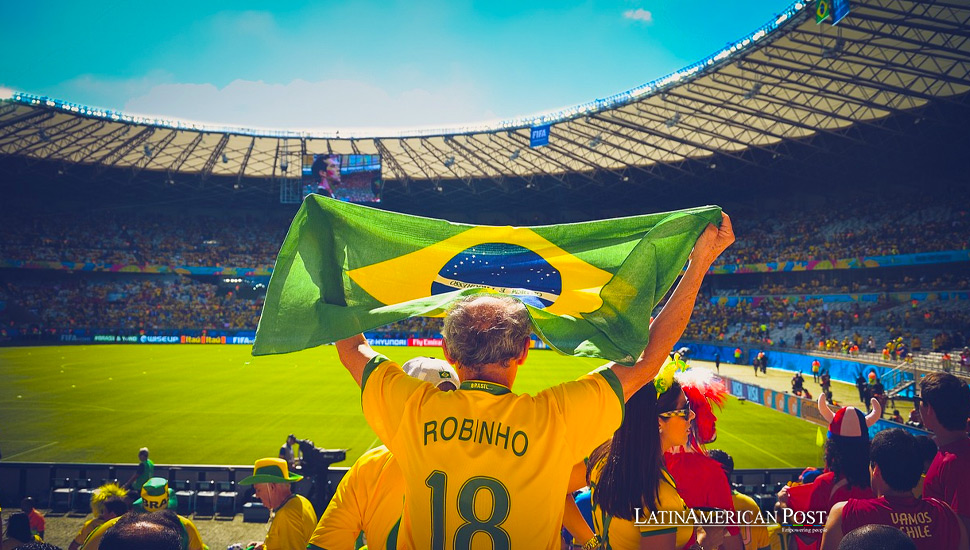Exploring the Business of Soccer in Latin America

From the roar of the crowds in Rio de Janeiro’s Maracanã Stadium to the passionate chants echoing through Buenos Aires’ La Bombonera, Latin America lives and breathes sports. The region has given the world iconic athletes, fierce rivalries, and moments etched in sporting history. But beyond the spectacle lies a complex economic landscape where the sports business plays a significant role.
Professional sports leagues in Latin America face distinct opportunities and challenges. Soccer reigns supreme, with top leagues in Brazil, Argentina, and Mexico generating significant revenue from broadcasting rights, sponsorships, and ticket sales. However, compared to European powerhouses like the English Premier League, Latin American leagues often struggle to retain top talent due to the lure of higher salaries and greater international exposure abroad.
Team ownership models vary across the region. Some clubs operate as membership associations, while wealthy individuals or private corporations own others. In recent years, there has been growing interest from foreign investors seeking to own a piece of iconic Latin American sports franchises. This trend raises questions about local ownership, fan engagement, and the potential for increased commercialization.
Latin American sports offer a mix of opportunity and inequality. Top soccer stars, especially those who leap European clubs, can command lucrative salaries. However, wages are modest for many athletes in the region, particularly for those playing in less popular sports or women’s leagues. The struggle for pay equity remains a critical issue, particularly in women’s soccer, where even the most successful players earn a fraction of their male counterparts.
Hosting Mega-Events: The Costs and Potential Rewards
Latin America has a long history of hosting major sporting events, including the Olympic Games and the FIFA World Cup. These mega-events offer the potential to boost tourism, generate economic activity, and showcase the host nation on the global stage. However, they also come with high costs. Massive infrastructure projects, such as stadiums and transportation upgrades, are required, often leading to budget overruns and controversy over displacement of communities.
The economic benefits of hosting mega-events are only sometimes guaranteed. Brazil’s hosting of the 2014 World Cup and 2016 Olympics sparked public backlash due to concerns about corruption and the displacement of low-income communities. Critics argue that resources would be better spent addressing social needs than hosting short-term sporting spectacles.
Securing the rights to host a major sporting event involves an intense and often controversial bidding process. Nations vying for the Olympics or the World Cup engage in aggressive lobbying campaigns and offer generous incentives to swing the vote in their favor. Allegations of corruption have plagued bidding processes in the past, raising concerns about transparency and fairness.
Athlete Pay Inequality: The Ongoing Struggle for Women Athletes
The fight for pay equity in Latin American sports remains a pressing issue, particularly in soccer. Despite the growing popularity of the women’s game and the success of stars like Brazil’s Marta, female players continue to earn substantially less than their male counterparts. This disparity reflects broader societal inequalities and highlights the need for a shift in attitudes and investment in women’s sports. Advocates are pushing for greater pay transparency, increased sponsorship, and a commitment from leagues and federations to support women athletes.
Certain sports can experience periods of rapid growth and inflated investment, creating the potential for economic bubbles. This phenomenon can be driven by factors like increased media exposure, successful athletes, or speculative investment. However, these bubbles can burst when expectations outpace reality, leaving investors and stakeholders facing significant losses.
The Value of Sports Franchises
Latin America’s most iconic sports franchises are valuable assets. Teams like Brazil’s Corinthians or Argentina’s River Plate command strong brand loyalty and have global fan bases. Their value is derived from historical success, stadium ownership, and the potential for revenue generation. As interest in Latin American sports grows, these franchises’ value will likely continue to increase, attracting investors and sparking debate about the commercialization of beloved sporting institutions.
Also read: Celebrating Latin America’s Paralympic Heroes
The economics of sports in Latin America will continue to evolve alongside broader societal and technological shifts. The rise of streaming platforms could reshape how fans consume sports, impacting broadcasting rights deals. Growing social consciousness among athletes and fans could lead to increased advocacy for pay equity and social justice within the sports world. The region’s passion for sports ensures its economic impact will endure. The key will be navigating the path forward in a sustainable, equitable way that preserves the heart and soul of Latin American sports that captivates the world.





